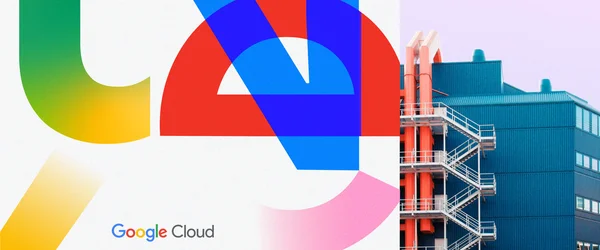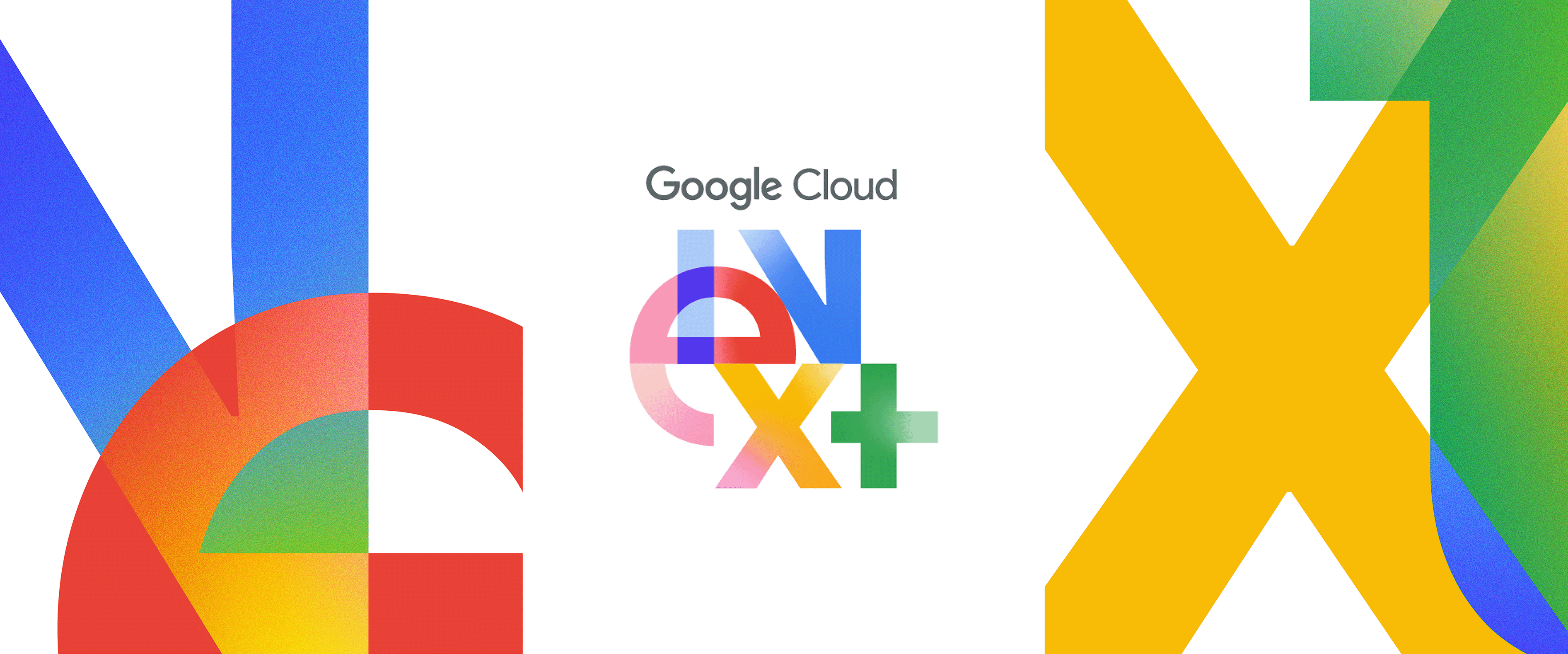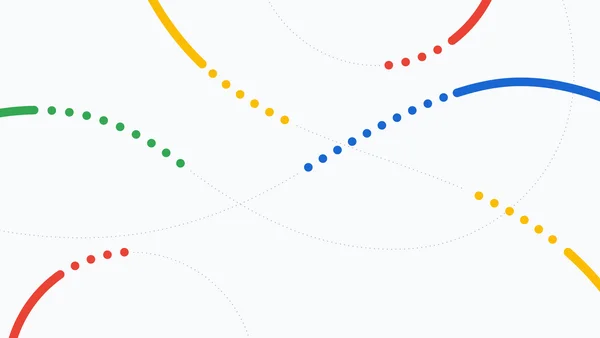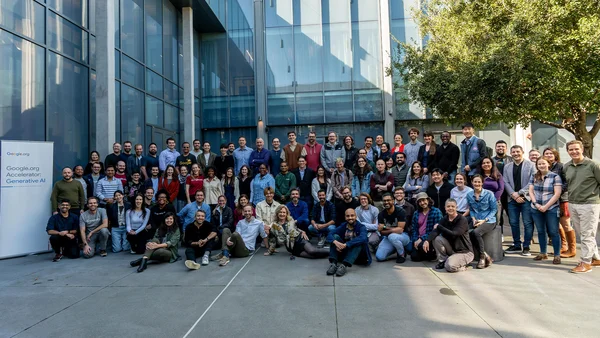
Startups are at the forefront of developing solutions for some of humanity's most pressing challenges by using AI, driving breakthroughs across industries from healthcare to cybersecurity.
To help AI-focused startups scale quickly while building responsibly, we’re thrilled to introduce the inaugural class of the Google for Startups Accelerator: AI-First program in North America. This new program is for startups building AI solutions based in the U.S. and Canada. This is the first of several AI-focused programs we'll offer throughout the year in Europe, India and Brazil.
This equity-free program provides 10 weeks of hands-on mentorship and technical project support to startups using AI in their core service or product. Selected startups will collaborate with a cohort of top peer founders and engage with leaders across Google. The curriculum will give founders access to the latest AI tools (including Google’s own Gemini), and will also include workshops on tech and infrastructure, UX and product, growth, sales, leadership and OKRs.
Meet the inaugural class of Google for Startups Accelerator: AI-First, North America
We’re thrilled to introduce the 15 AI startups selected for this accelerator:
Aptori, San Jose, CA. Aptori assists developers and security engineers to build secure, high-quality software.
Augmend, Seattle, WA. Augmend is an AI native Loom made for developers, making it possible to share expertise, not just videos.
Backpack Healthcare, Elkridge, MA. Backpack Healthcare is a pediatric mental health company utilizing proprietary AI technology, an engagement platform, and live therapists to offer personalized care to patients.
BrainLogic AI, Menlo Park, CA. BrainLogic AI has built a localized AI agent that connects users and businesses through whatsapp.
Cicerai, The Woodlands, TX. Cicerai is an AI-native Legal Practice Management Platform, boosting productivity and enhancing quality.
CLIKA, San Jose, CA. CLIKA simplifies deploying AI models on diverse hardware by offering automated model compression and format compilation.
Easel AI, Inc., Los Angeles, CA. Easel AI is an AI avatar-based social chat app that runs on iMessage.
Findly, San Francisco, CA. Findly is a data visualization integrator using a natural language chat interface.
Glass Health, San Francisco, CA. Glass Health empowers clinicians with the best-in-class AI platform for clinical decision support.
Kodif, Sunnyvale, CA. Kodif is a low-code AI-powered automation platform for support agent workflows to resolve customer issues.
Liminal, Indianapolis, IN. Liminal empowers regulated enterprises to securely deploy and use generative AI, horizontally covering every interaction and use case.
Mbue, Austin, TX. Mbue leverages AI to instantly review architectural drawings, catching errors earlier and streamlining the process.
Modulo Bio, San Diego, CA. Modulo Bio is building a platform to discover therapeutics that prevent or reverse neurodegenerative diseases.
Rocket Doctor, Toronto, ON, Canada. Rocket Doctor is a digital health platform and marketplace that intelligently matches patients and clinicians in a telemedicine 2.0 approach.
Sibli, Montreal, QC, Canada. Sibli is a fintech platform that processes unstructured data and identifies key insights for financial analysts.
The program kicks off at Cloud Next 2024 and culminates with a high profile Demo Day in June for potential partners, customers and investors.
After graduation, startups join the dynamic Google for Startups accelerator community, where they receive ongoing support and have the opportunity to build lasting connections with like-minded founders, mentors and investors.
We are honored to partner with this cohort of companies through this accelerator and beyond, to advance their AI technologies. Register your interest to get updates on the program, and join us in celebrating these exceptional startups!
 Posted by Matt Ridenour, Head of Startup Developer Ecosystem - USA
Posted by Matt Ridenour, Head of Startup Developer Ecosystem - USA
 Discover how companies are using AI technologies to fuel innovation, create new customer experiences and develop better tools for employees.
Discover how companies are using AI technologies to fuel innovation, create new customer experiences and develop better tools for employees.
 Posted by Tris Warkentin – Director, Product Management and Jane Fine - Senior Product Manager
Posted by Tris Warkentin – Director, Product Management and Jane Fine - Senior Product Manager



 Google and Alphabet CEO Sundar Pichai shares new generative AI capabilities for organizations, announced at Cloud Next 2024.
Google and Alphabet CEO Sundar Pichai shares new generative AI capabilities for organizations, announced at Cloud Next 2024.
 Posted by Sandhya Mohan – Product Manager, Android Studio
Posted by Sandhya Mohan – Product Manager, Android Studio




 Posted by Bitnoori Keum – DevRel Community Manager
Posted by Bitnoori Keum – DevRel Community Manager

 Today we’re releasing our “AI Sprinters” report, outlining ways for developing countries to take advantage of AI’s potential.
Today we’re releasing our “AI Sprinters” report, outlining ways for developing countries to take advantage of AI’s potential.
 We’re sharing a few insights from a survey with nonprofits about how they’re using generative AI.
We’re sharing a few insights from a survey with nonprofits about how they’re using generative AI.
 Learn about the nonprofits joining our newest accelerator focused on generative AI.
Learn about the nonprofits joining our newest accelerator focused on generative AI.
 An overview of our paper in Nature on how we are using AI to help scale flood forecasting to vulnerable communities around the world.
An overview of our paper in Nature on how we are using AI to help scale flood forecasting to vulnerable communities around the world.